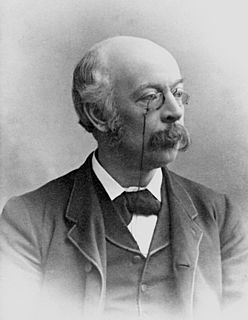A Quote by Johann Wolfgang von Goethe
After all, poets shouldn't be their own interpreters and shouldn't carefully dissect their poems into everyday prose; that would mean the end of being poets. Poets send their creations into the world, it is up to the reader, the aesthetician, and the critic to determine what they wanted to say with their creations.
Related Quotes
In general, I would think that at present prose writers are much in advance of the poets. In the old days, I read more poetry than prose, but now it is in prose where you find things being put together well, where there is great ambition, and equal talent. Poets have gotten so careless, it is a disgrace. You can’t pick up a page. All the words slide off.
Poets seem to write more easily about love than prose writers. For a start, they own that flexible ‘I’…. Then again, poets seem able to turn bad love – selfish, shitty love – into good love poetry. Prose writers lack this power of admirable, dishonest transformation. We can only turn bad love into prose about bad love. So we are envious (and slightly distrustful) when poets talk to us of love.
Nearly all men and women are poetical, to some extent, but very few can be called poets. There are great poets, small poets, and men and women who make verses. But all are not poets, nor even good versifiers. Poetasters are plentiful, but real poets are rare. Education can not make a poet, though it may polish and develop one.
I say, 'Get me some poets as managers.' Poets are our original systems thinkers. They contemplate the world in which we live and feel obligated to interpret, and give expression to it in a way that makes the reader understand how that world runs. Poets, those unheralded systems thinkers, are our true digital thinkers. It is from their midst that I believe we will draw tomorrow's new business leaders." --Sidney Harman, CEO Multimillionaire of a stereo components company
I'm more than a little suspicious of humor in poems, because I think it can at times be a way of getting a reaction out of a reader, or an audience, that is something closer to relief: i.e., thank god this isn't poetry, but stand-up comedy. Some poets are really funny, but more often poets are fourth rate stand up comics at best. But they benefit from the sheer relief of the audience.






































